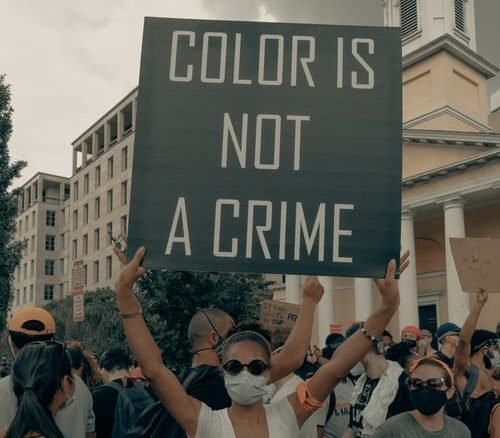By Sally Bartolameolli & Kim Siongco,
On my first phone call home as a freshman in college, I told my mother that my college roommate was Black.
“You can ask for a new roommate,” she exclaimed. “You can get another roommate,” she repeated.
My mother wasn’t easily excitable. I’d rarely heard alarm in her voice. And when I told her that I was just getting to know Valerie, and I really liked her, she seemed to return to a state of rationality, of calm.
“Oh, yes, yes,” she’d answered, perhaps realizing some leap she made from the fair-minded humanity I’d grown up with into prejudice that surprised us both. It didn’t register at the time, but this was my introduction into implicit bias. My mother was unconscious of her racism. So was I.
Ten years later, I began my conscious journey to understand racism, sexism, ageism, and all the oppression theories that assist us in understanding the implicit bias we all experience having grown up in a dominant culture. Volumes have been written about teasing apart these internalized beliefs and behaviors to analyze them and familiarize ourselves with the origins of these ways of thinking. We encourage learning about systemic racism.
Right here and now at LORA Bridges, we offer foundational, simple communication practices that build bridges in approaching issues of racism, and give us a starting place for integrating behavior changes.
Three years ago, my friend and colleague, Dee Gardner-Wilson, and I began D.A.R.R.E., Dialogue Authentically About Real Racial Experiences.
Dee is Black Chick. I am White Chick. We share with our audience authentic dialogues we have about real racial issues.
For now, here are Black Chick’s answers to my question, “How can I help in understanding racism?”
According to Black Chick, Dee Gardner-Wilson, here is what White Chicks can do:
- Notice Your Curiosity. If you are wondering what implicit bias might be or wondering if you are racist, notice this curiosity and explore it further.
- Take the Risk to Ask. If you want to learn about white privilege or whether or not something might be bias or racist, take the risk to ask a person of color, a black colleague, or friend. It is risky, but you might discover that it is a risk worth taking.
- Drop the Label. It can be intimidating to say you are “racist” so drop the label. Don’t let the word keep you from leaning into your curiosity and desire to learn. The acknowledgment and acceptance that we all have bias will assist you in harnessing the courage it takes to learn more.
- Immerse Yourself and Leave Your Cocoon. If you want to learn about other cultures, immerse yourself in that culture. Attend a Black church, watch movies and television shows that depict diverse cultures, and read literature and non-fiction books written by Black authors. Beloved & Post Traumatic Slave Syndrome are a good place to start.
Transformation is not easy. For anything to “transition in form” from one place to another, especially our thoughts, something must die.
We release preconceived ideas to make space for learning anew.
We release attachments to what we believe to open to what we do not know.
We release our self-identity and judgments of another to courageously venture into cognitive dissonance that gives rise to our evolution and transformation.
At LORA Bridges, we empower transformation for the purpose of building bridges.






